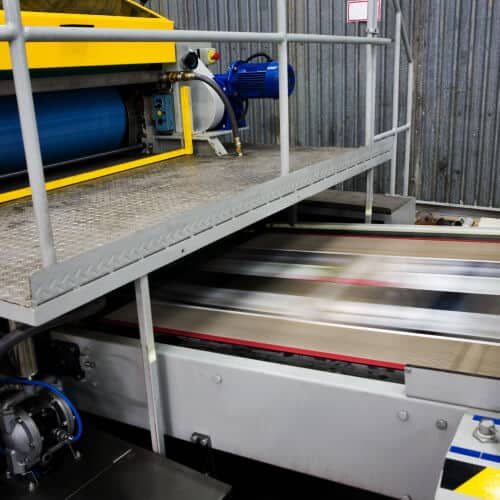litho printing for High-Volume Commercial Projects
litho printing for High-Volume Commercial Projects
Blog Article
A Comprehensive Overview to Understanding Litho Printing Strategies
The globe of litho printing, a method originating from the late 18th century, is a remarkable blend of background, art, technology and science. This extensive overview will untangle the complexities of this printing approach, from the composition of litho inks to the obstacles faced in modern-day applications. As we venture into the ins and outs of lithography, the importance of automation and sustainability in guaranteeing its future importance becomes significantly clear. Remain with us as we trip into the fascinating realm of litho printing.
The Historical Evolution of Litho Printing
The historical trajectory of litho printing, an essential innovation in the realm of interaction, is an exciting story of human ingenuity. The process progressed with the arrival of the rotating press, which significantly enhanced productivity. Each phase of litho printing's development showcases humankind's relentless search of effectiveness and high quality in visual interaction.
Deciphering the Science Behind Litho Printing Inks
Progressing in the exploration of litho printing strategies, the focus now changes to the science behind litho printing inks. The composition of these inks, their drying out process, and shade mixing methods form the foundation of this complex art kind. Comprehending these elements is essential to mastering the craft and accomplishing the desired print outcomes.
Composition of Litho Inks
In lithographic printing, the fundamental duty of litho inks can not be overstated. The make-up of litho inks varies depending on its objective, however normally, they include 2 primary parts - pigments and lorries. Pigments, the color-providing components, are carefully ground particles put on hold in the automobile, a liquid that carries the pigment onto the printing surface area. The vehicle is an intricate mix of oils, solvents, and materials, which affect the ink's drying time, attachment, and gloss. Additionally, different additives are existing to boost certain buildings like circulation, drying, and resistance to environmental impacts. Each element plays an essential part in the last print's top quality, making the accurate formula of litho inks a detailed science.
Ink Drying Refine
From the composition of litho inks, attention turns to the fascinating process of ink drying. The drying procedure is vital, as it impacts the final print's high quality and longevity. 2 key approaches are utilized in litho printing: oxidative drying out and absorption. Oxidative drying out entails the ink responding with oxygen airborne to create a tough, completely dry movie. This technique supplies a long lasting finish, but can be slower contrasted to absorption. Absorption, on the other hand, involves the ink seeping into the paper fibers, which is a quicker process however can result in less dynamic colors. The choice in between these techniques depends on variables such as print rate requirements, the paper kind made use of, and the preferred surface.
Shade Mixing Techniques
While the drying process plays a vital role in litho printing, the scientific research of shade mixing strategies holds equivalent importance. The science behind litho printing inks likewise takes right into account the openness of the ink, which impacts exactly how shades overlay and mix.
The Art and Design Components in Litho Printing
Litho printing breathes life right into art and style through its one-of-a-kind aspects. Litho printing fits a range of shades, allowing musicians to produce vibrant and vibrant prints. This mix of precision and flexibility makes litho printing a recommended choice for numerous musicians and designers.
Modern Applications of Litho Printing Methods
Litho printing methods have actually found substantial usage in the modern industrial market. Its influence and significance continue to grow with the development of new innovations and technologies in the area. This section will certainly discover these contemporary applications and the transformative function they play in the printing industry.
Industrial Litho Printing Makes Use Of
Litho printing stays a critical part of the business market. High-volume printing tasks, such as the manufacturing of publications, papers, and packaging, rely on litho printing for its capacity to provide premium picture top quality and expense efficiency. Litho printing likewise offers a broad color spectrum, remarkable to that of electronic printing.
Advancements in Litho Printing
Pushing the borders of standard methods, modern-day innovations have fueled a host of innovations in litho printing. These innovations have not only improved go to my blog the top quality and effectiveness of litho prints but also expanded its application range. One prominent growth is digital litho printing, which incorporates the virtues of digital innovation with litho's high-quality outcome. This crossbreed model provides faster setup times, decreased waste, and makes it possible for on-demand printing. Another significant improvement is the intro of eco-friendly inks. These inks, made from vegetable or soy-based remedies, have actually dramatically reduced the sector's environmental impact. litho printing. Furthermore, the development of advanced plate innovation has structured the printing process, causing sharper photos and boosted shade integrity. These innovations emphasize the enduring importance of litho printing in the modern world.
Checking out the Refine of Litho Printing: Action by Step

Obstacles and Solutions in Contemporary Litho Printing

In spite of the precision and practice that litho printing proudly upholds, it is not without its set of contemporary obstacles. Digital litho printing permits for economical short runs and very easy customization, resolving the problem of variable data. Therefore, while there are obstacles, the litho printing sector is proactively adapting to meet them head-on, guaranteeing its relevance in the future.
Verdict
In verdict, litho printing, with its rich history and clinical intricacies, holds a substantial location in the print sector. The future of litho printing hinges on its capacity to adapt to these transforming demands, attesting its enduring worth in an evolving market.

Report this page